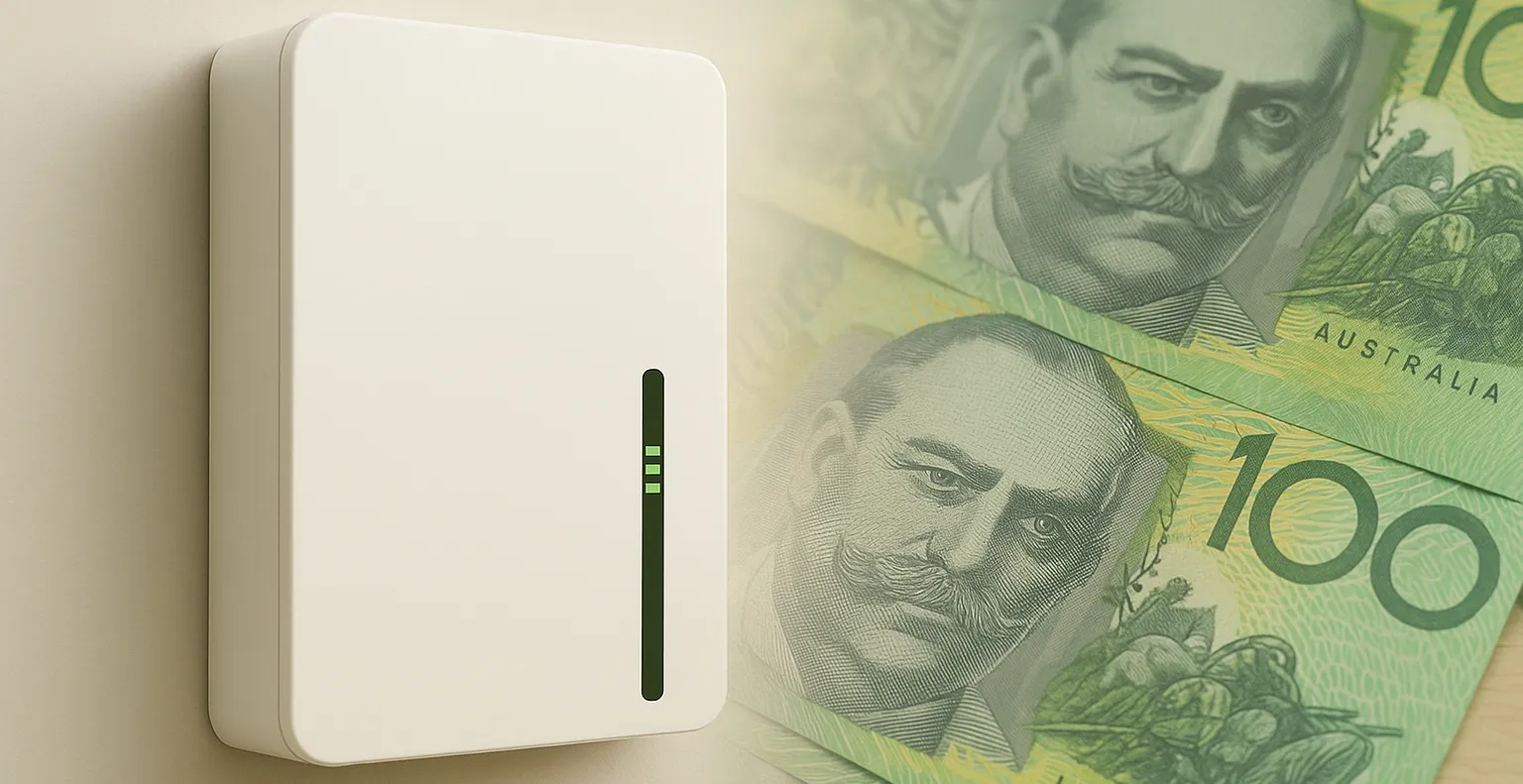If you’ve put solar on the roof and mentally filed it under “job done”, here’s the uncomfortable truth: neglect can be expensive—and sometimes flammable. According to Energy Safe Victoria (ESV), more than 50 rooftop house fires in the past year were linked to solar systems that had never been serviced. The good news? Those fires were avoidable with routine maintenance.
Your panels live outdoors doing the hard yards through heatwaves, winter squalls and everything in between. That weather cocktail slowly works on wiring, seals and switches. ESV stresses that regular servicing keeps systems both safe and efficient—so you keep enjoying the cheap electricity without nasty surprises.
How often should you service solar?
ESV recommends having your solar system serviced every two years, unless your installer advised otherwise. Preventative maintenance is far cheaper than repairing damage after the fact.
The team at SolarQuotes adds some perspective: while ESV urges two-yearly checks, they note that many quality systems may be fine with a professional inspection every five years. The difference highlights a tension between safety-first regulation and practical industry experience. The key message? Don’t ignore servicing altogether—whether you choose the two-year or five-year approach, routine checks are essential.
Who should do the servicing?
According to ESV, solar servicing must only be carried out by a licensed A-Grade electrician, ideally one accredited by Solar Accreditation Australia. Always ask to see their licence. A proper service should conclude with a written report detailing what was checked, repaired or flagged for attention.
What does a real service involve?
This isn’t just a panel wash. ESV advises that a professional solar service includes:
- Electrical testing across all system components
- A visual inspection of cabling and equipment
- Clearing leaves and debris around the inverter and under arrays
- A specific test of the d.c. isolator (the weather-battered box that, if cracked, can let in moisture and become a fire risk)
SolarQuotes underscores this point: faulty rooftop d.c. isolators are a leading cause of solar-related house fires, with 138 incidents recorded in Victoria over three years. The good news is that under the updated AS/NZS 5033:2021 standard, rooftop d.c. isolators are being phased out in favour of safer disconnection points—reducing long-term fire risks.
What will it cost?
Costs vary depending on system size, age and complexity. ESV advises getting a detailed written quote and comparing at least two options. SolarQuotes provides a ballpark: a professional inspection typically falls between $300 and $550.
A word on “solar cleaners”
Here’s where ESV is blunt: if they’re not a licensed A-Grade electrician, they shouldn’t be servicing your solar. Paying someone to simply wash panels may not only void your warranties but also create fresh risks. Think of it like “servicing” your car by only washing the bonnet.
How to choose the right electrician
Energy Safe Victoria provides clear guidance in its Electrical Workers information:
- Licence + REC: Work must be carried out by a licensed A-Grade electrician employed by a Registered Electrical Contractor (REC).
- Accreditation: For added peace of mind, check if they hold Solar Accreditation Australia credentials.
- Proof: Qualified electricians carry an ESV-issued ID card—always ask to sight it.
- Finding them: ESV licenses Victoria’s electrical workers and maintains a public register of RECs. With around 45,000 licensed electricians and contractors across the state, you won’t be short of choice.
Certificates you should receive
By law, any electrical installation work in Victoria must come with a Certificate of Electrical Safety (COES). This confirms the work met ESV’s standards and may be subject to audit.
There are two types of COES:
- Prescribed: For major wiring jobs (up to the switchboard, or where circuits can’t be isolated). These require independent inspection by a qualified electrical inspector.
- Non-prescribed: For smaller jobs where circuits can be isolated (e.g., safety switches, power points, light points). These don’t require inspection by default, but ESV may still audit them.
If an electrician won’t provide a COES, ESV urges householders to contact them immediately.
DIY? Don’t.
ESV’s position couldn’t be clearer: doing your own electrical work is illegal and dangerous. Always hire a registered electrical contractor, who in turn must send a licensed professional to carry out the job properly.
Managing expectations on bills
ESV also notes that sometimes people think their solar system isn’t working, when the real culprit is the electricity bill itself—thanks to opaque tariffs and rising fixed charges. A system in top condition can’t compensate for retail pricing structures, so it pays to understand both sides of the equation.
The scale of the issue in Victoria
SolarQuotes points out that Victoria has around 833,000 solar systems, with nearly half a million now over five years old. That ageing fleet underscores why campaigns like ESV’s “Make The Safe Call” are critical: too many systems haven’t been checked since installation.
Bottom line
According to Energy Safe Victoria, keeping your rooftop solar safe and reliable comes down to:
- Servicing every two years
- Using a licensed A-Grade electrician (ideally accredited by Solar Accreditation Australia)
- Expecting a full inspection, electrical testing and a written report
- Receiving a COES for all electrical work
- Steering clear of “solar cleaners” who aren’t licensed electricians
- Contacting ESV if a contractor refuses to provide the right documentation
And as SolarQuotes reminds us, even if you stretch servicing intervals, the non-negotiable rule is this: get your system professionally inspected, don’t ignore it. A little maintenance, done by the right professional, goes a long way to protecting both your savings and your home.
Article info sourced from:
Energy Safe Victoria - Electrical workers
Energy Safe Victoria - Keeping your home solar safe
Solar Quotes - Solar Power System Servicing: Make The Safe Call

